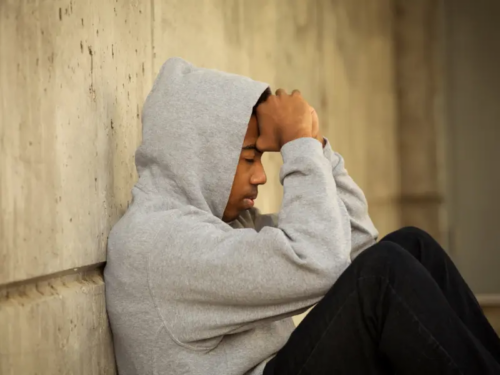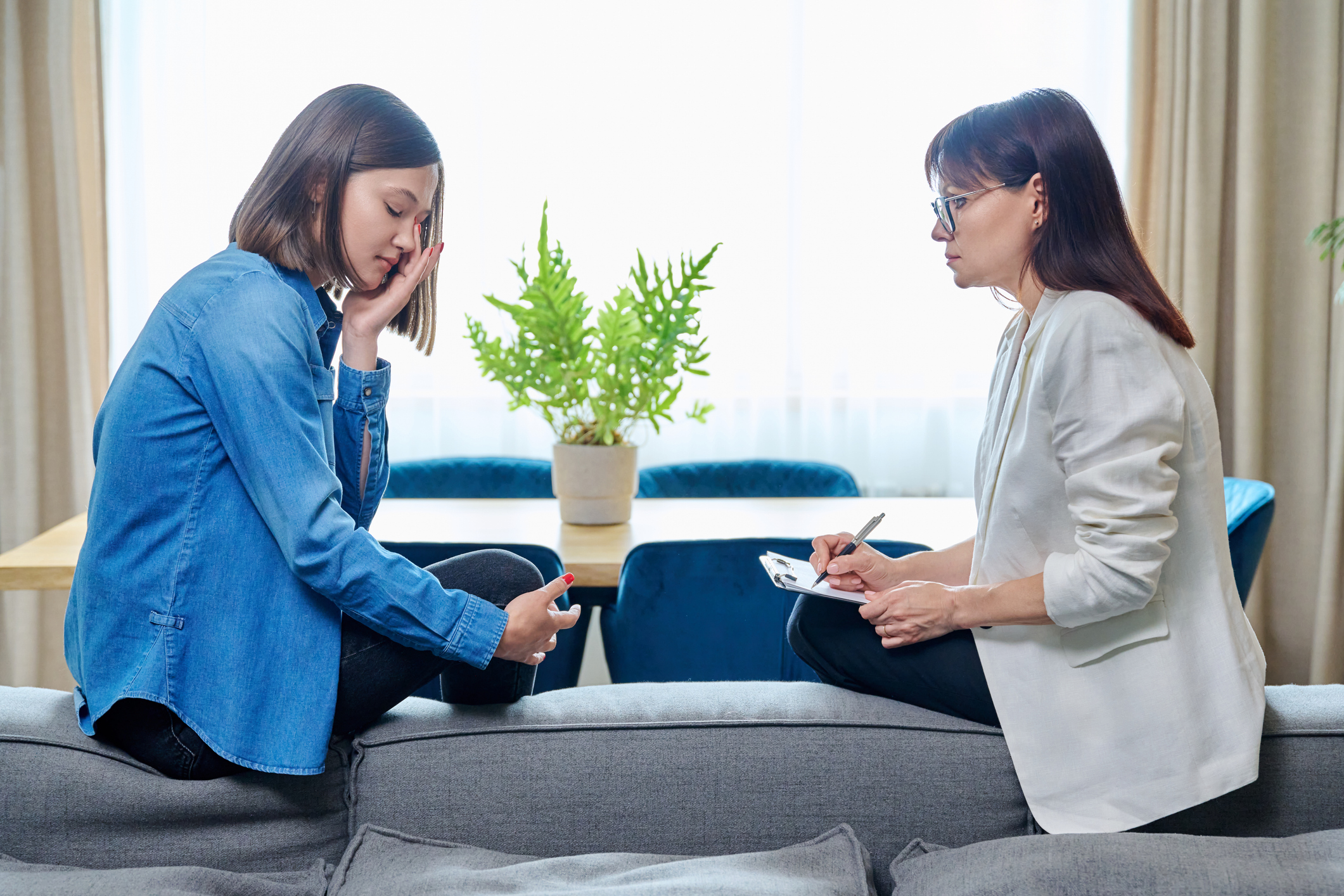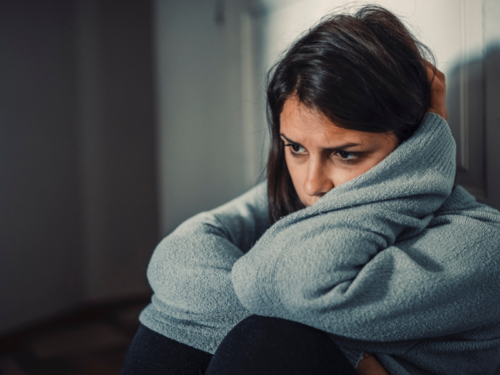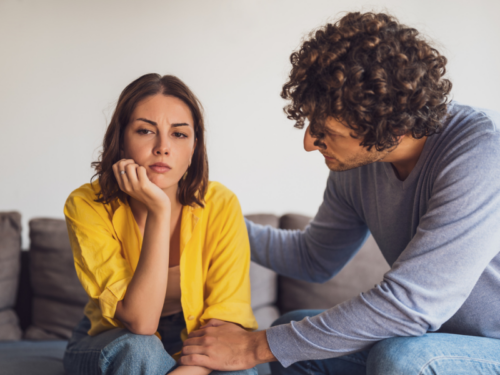
Table of Contents
Common Signs of An Abusive Relationship, According to Therapists

Written By: Sarah Fielding

Clinically Reviewed By: Meghan Jensen
October 17, 2024
7 min.
Signs of abusive relationships include controlling behavior, manipulation, emotional abuse, and fear — to name only a few. Read on for more.
Learn more about our Clinical Review Process
Table of Contents
Abusive relationships can occur within any dynamic. It might be a romantic, platonic, familial, work, or care relationship — and it’s widespread. In the United States alone, an estimated ten million people experience familial or domestic violence each year.
Each instance of relationship abuse comes with signs like controlling behavior and extreme jealousy, though they might not be obvious. “The dynamics are similar, and some of the symptoms overlap; they’re just often in a different context,” says Charlie Health Senior Primary Therapist Sarah Lyter, LCPC, MA. Manipulation might sound like, “You’re my only friend; I need you,” or in a romantic context, “You’re my partner; I love you and need you,” to evoke guilt, says Lyter.
Charlie Health Group Facilitator Clary Figueroa, MSW, adds to this, explaining that familial abuse could “manifest in different forms, including sibling rivalry, parental control, or generational patterns of abuse.” Whereas an abusive partner typically focuses on “intimacy issues, jealousy, and possessiveness that can escalate to physical violence.” Read on for more signs of an abusive relationship and expert tips on how to seek trauma-informed support (or support someone else facing abuse).

You deserve support
Virtual, trauma-informed therapy for survivors of abuse.
3 common signs of an abusive relationship
Regardless of the dynamic through which the abuse is perpetrated — intimate partner violence, by a family member, a friend, or in another relationship — the indicators of abuse can often look similar. According to Lyter and Figueroa, common signs of an abusive relationship include:
1. Control and manipulation
This can look like one person making every decision, an unequal power dynamic, extreme jealousy, and monitoring the other person. Control can also involve isolation from friends, family, or other support networks. Think about if the person in question comes up with reasons to doubt other people or has an issue about you meeting other people. It can be as simple as a friend convincing you that other friends aren’t as cool or worth spending time with.
Manipulation might involve guilt-tripping, gaslighting, or other methods to make you doubt your reality.
2. Intimidation and threats
Intimidation could involve stalking, destroying property, or threatening violence. These are instances when an abuser tries to make you scared of them and what they might do if you go against them.
3. Fear
Does your loved one look scared every time they’re around the potential abuser or if they do something they won’t like? Do you recognize these sensations in yourself? Fear is a strong method to control someone and can be a clear sign of an abusive relationship. Think about it: The people closest to you shouldn’t give you a reason to fear them.

Common forms of abuse
A healthy relationship will involve supporting your goals and interests, a safe space to voice concerns, and room for you to be your own whole person. An abusive or unhealthy relationship will take away these things. Relationship abuse takes many forms, and here are some of the most common, according to our experts:
- Emotional abuse or psychological abuse, including being blamed for everything or bearing the brunt of unpredictable mood swings
- Physical abuse, such as hitting, kicking, and any kind of violence
- Sexual abuse defined as anything related to sex you don’t consent to
- Financial abuse defined as an abuser controlling your finances
- Elder abuse, specifically targeted toward older adults
5 steps to take if you’re experiencing an abusive relationship
It’s critical to point out that there is no easy way to leave an abusive relationship. Doing so, Lyter points out, can be close to impossible due to financial, emotional, and physical barriers — to name only a few. A person must often upend their entire life and face potential danger in order to escape an abusive relationship. They also must reckon with the connection and feelings they have towards their abuser. There is nothing cut and dry about the situation at all.
“Love and obligation may complicate the decision to leave or confront abusive behavior, often leading to feelings of guilt,” adds Figueroa. “Emotional bonds can create a cycle of hope for change and reconciliation, making it hard to break free.”
1. Recognize the abuse
The first step to take if you’re experiencing an abusive relationship is just that: acknowledging that this is what’s happening. It can be hard to admit, but doing research and learning more about what abusive relationships look like can be really beneficial.
2. Start small
The process of leaving can often be in small increments. “Sometimes you may need to take slow steps to independence in order to be able to leave, including saving money, communicating with supports, looking for housing or shelter, and improving skills and problem-solving,” says Lyter.
3. Create a safety plan
An important step is creating a safety plan. Organizations such as the National Domestic Violence Hotline (NDVC) offer resources to help you create a safety plan that you can review online, print, or copy down on paper. As the NDVC explains, “A safety plan is a set of actions that can help lower your risk of being hurt by your partner. It includes information specific to you and your life that will increase your safety at school, home, and other places you go daily.” Keep your safety plan out of sight of your abuser.
4. Document everything
Lyter recommends keeping track of everything that occurs, but again, in a hidden place. Doing this can maintain a record of the abuse and remind you of what you’ve experienced if your abuser tries to gaslight you.
5. Seek professional help
This could be legal and medical help. From the legal side, you might be able to get a restraining order, learn about custody (if relevant), and other related matters. Medical help can include sessions with a mental health professional and attending support groups. Organizations for ending abuse can help you find accessible resources to pursue these avenues without cost getting in the way. The National Alliance to End Child Abuse and Neglect has a comprehensive list of many hotlines you can reach out to, depending on what you’re experiencing. You can find it here.
Figueroa also stresses the importance of speaking with trusted friends and family members. “Many times, the perpetrator may try to isolate the victim, so keeping a close support system is important,” she says.
How to help someone in an abusive relationship
So, what can loved ones do to help someone experiencing abuse? It is impossible to fully know how someone feels or what they are going through from the outside. This is not the time for judgment or acting like this isn’t something anyone could experience. One of the most critical things a loved one can do is to provide patience and support, not an ultimatum. “It can take time for someone to become ready to leave an abusive relationship because there are often significant barriers, so support them throughout this process,” says Lyter.
Remember that a person might struggle to find support, so anything that you can give them is important. In instances of familial abuse, “Support may be complex due to shared history and potential family loyalty, making it harder to seek help,” says Figueroa. “In romantic relationships, friends may be more readily available to support, but partners may also manipulate friendships.” Here are some other steps you can take to offer support:
1. Educate yourself
If you believe that someone you know is experiencing relationship abuse — or they have outright told you — one of the best things you can do is educate yourself. “Learn about the dynamics of abuse, including signs and impacts, to better understand what they’re going through,” says Figueroa.
2. Be a safe space
The worst thing you can do is blame or act disappointed in the other person for being in an abusive situation or not leaving it immediately. Lyter explains that now is the time to provide them with a safe space to share their experience and feelings. Reinforce that this is not their fault and that everything they feel is valid.
3. Provide practical help
Can you encourage them to speak with a mental health professional and find options for them? Can you help them create a safety plan, look up hotlines, and find places they could stay if they have to move in order to leave the abusive relationship? These are critical ways you can assist your loved one in taking steps toward leaving an abusive relationship.
You can also help them regain a sense of self-worth and independence through activities and opportunities outside the relationship,” says Figueroa.
4. Keep in touch
Try to stay connected as much as you can. Lyter and Figueroa recommend staying in contact, reminding them they’re not alone, and being prepared in case of an emergency. At the same time, remember to also take care of yourself while helping your loved one. “Supporting someone in an abusive relationship can be difficult,” says Lyter. “Set boundaries, know your limits, and engage in self-care.”

How Charlie Health can help
If you or a loved one is struggling with signs of an abusive relationship, Charlie Health is here to help. Charlie Health’s virtual Intensive Outpatient Program (IOP) provides more than once-weekly mental health treatment for young people and families dealing with serious mental health conditions, including trauma from abuse. Our expert clinicians incorporate evidence-based therapies into individual counseling, family therapy, and group sessions. With this kind of holistic treatment, recovering from abuse is possible. Fill out the form below or give us a call to start healing today.
References




